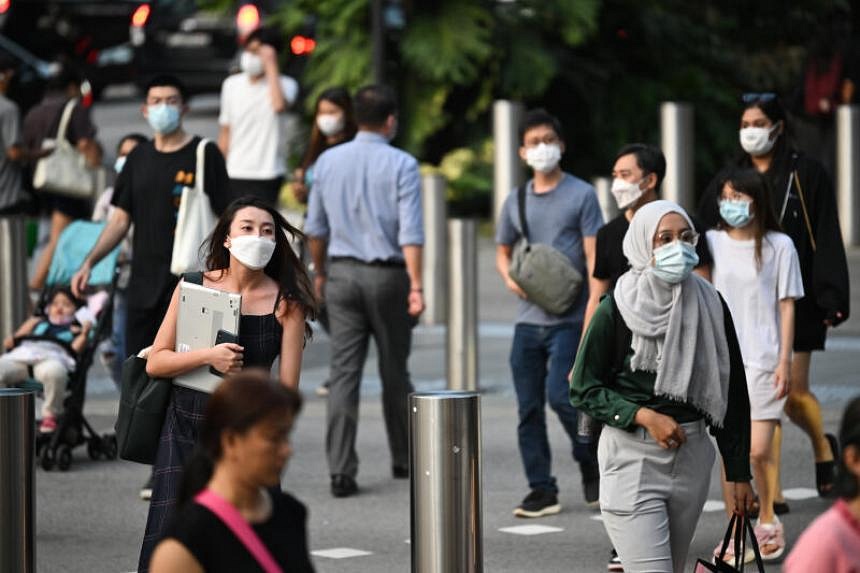SINGAPORE - With around seven in 10 people here having been infected with Covid-19, the next big wave will likely be a wave of reinfections.
While Singapore is more resilient now given that its current wave has just subsided, the Republic needs to be prepared for a year-end wave that may be caused by a variant of concern that dodges immunity from past infection, said Health Minister Ong Ye Kung on Wednesday morning (Aug 24).
Mr Ong noted at a multi-ministry task force (MTF) on Covid-19 press conference that reinfection cases have climbed to about 5.5 per cent of infections here this month, compared with about 3 per cent of cases the last time he updated Parliament.
"We have far fewer Covid-19-naive individuals, which means that our next wave must comprise many reinfections," Mr Ong said, noting that immunity gained from infection will also wane over time.
This is why the Ministry of Health is closely monitoring reinfection numbers, as this will give the authorities an idea when the next wave can happen, he added.
Data has shown that the probability of reinfection eight months later is still very low at around 5 per cent compared with the risk faced by someone who has not been infected by Covid-19 before - which is a good sign, he said.
Mr Ong noted that countries in the northern hemisphere, such as the United States and in Europe, are all preparing for a winter wave and possibly a new variant of concern..
Singapore should, likewise, prepare itself, said Mr Ong: "It may even be a new variant of concern with significant immunity escape."
A key part of these preparations is managing healthcare capacity, he said.
The MTF has found ways to ease the heavy workload in the hospitals by setting up Covid-19 treatment facilites (CTF), to alleviate the pressure on hospitals so that they could admit Covid-19 patients who are seriously ill to receive urgent medical care.
A new category of facilities called the transitional care facilities (TCF) will also help.
The TCF is a dual-use facility, which means that during a surge in Covid-19 hospitalisations, it can become a treatment facility for lower risk Covid-19 patients.
The TCF can also act as a step-down care facility for non-Covid-19 patients, including those who might be staying in the hospital waiting for nursing homes.
A TCF of 164 beds has already been set up at Sengkang Community Hospital.
"The TCF has worked very well because it is next to the Sengkang General Hospital, and these two facilities work hand in hand... reducing the heavy workload in Sengkang," Mr Ong said.
The authorities are also progressively converting Hall 10 of Changi Exhibition Hall from a CTF into a TCF.
"That means by the end of September, we will have a total of 364 beds for TCFs," he said.



